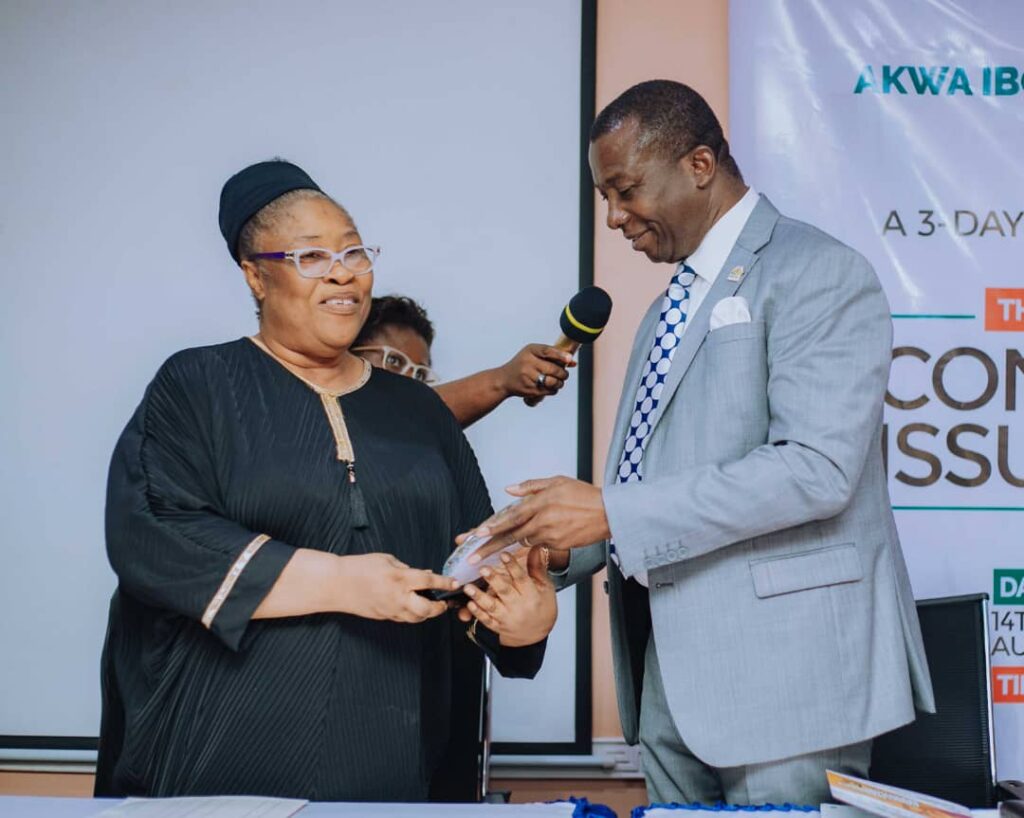AKIRS Holds Workshop On Taxation For Judges
The second stream of a 3-day workshop on taxation for select High Court Judges and Revenue Court Judges in Akwa Ibom State commenced Wednesday 14th August in Uyo.
The workshop organised by the Akwa Ibom State Internal Revenue Service, AKIRS, with the theme, “Contemporary Issues in taxation” aims to deepen the knowledge of the Judges on trends in taxation to improve tax administration and adjudication in the state.
The first stream of the workshop was held in August last year.
The Executive Chairman, AKIRS, Sir Okon Okon, said the workshop was borne out of a need to continuously acquaint tax administrators and adjudicators with new issues in taxation and tax administration to improve tax justice delivery, as well as the Service’s quest to expand tax knowledge and development of a healthy and friendly tax ecosystem in the State.
Okon noted that as new economies emerge through expansion in businesses, innovations and technology, new tax policies evolve with them, creating inevitable need for frequent exposure on these dynamics especially for judicial officers who are in-charge of interpreting and ensuring fair application of tax laws.
“Judges play key roles in interpreting the law and ensuring fairness in the application of tax regulations through the justice delivery system. It is therefore pertinent for the Judiciary to keep abreast with trends in taxation.”
“I am optimistic that this training will serve that purpose as well as open windows for sharing of knowledge and ideas on how to improve tax adjudication and administration in our State.”
Okon thanked the Governor, Pastor Umo Eno, for giving enabling support to AKIRS to carry out its mandate of effectively mobilising internally generated revenue for the state.
He equally thanked the State Chief Judge, His Lordship, Justice Ekaette Obot, for allowing the State Judiciary to collaborate with AKIRS to organise the workshop, saying the collaboration underscores the premium His Lordship places on capacity-building for judicial officers.
In her remarks, the CJ, Justice Ekaette Obot, said taxation is an evolving field and the vital component of government revenue, hence, required continuous training and retraining of Judges to be efficient and effective in handling tax-related cases.
Assessing the workshop, Justice Obot said it was well curated to empower Judges with deeper insights into tax issues.
“Taxation is an evolving field, subject to constant policy, law and administrative changes. Being the vital component of generating Government Revenue and providing essential service it serves as a fundamental pillar in shaping the economic landscape of any society.
“Therefore continuous training and retraining for the Judges becomes paramount for the efficient and effective handling of tax related cases. Particularly, as the bastion of Justice, the Judiciary is inherently connected to efficient tax management, playing the crucial role of upholding the principles of Justice, equity and fairness through interpreting laws and resolving tax disputes.”
“It becomes pertinent that our Judges and Magistrates must possess the necessary knowledge and skills to handle contemporary tax matters.”
“I have seen the well-curated training programme to enhance the understanding of statutory and constitutional frameworks governing taxation, empower Judges with insights into mechanisms for revolving tax disputes and provide an overview of the legal framework for taxes collected by State and Local Government.”
The opening ceremony of the workshop received goodwill messages from the Attorney-General of the State and Commissioner for Justice, Mr Uko Udom, SAN, and the Commissioners in the Ministry of Economic Development, Mr Emem Bob, and Finance, Nsikan Nkan PhD.
Papers for the workshop include, “Tax dispute resolution from administrative, statutory and constitutional perspectives”, “Tax prosecution and its innovations as an option in tax recovery”, “Overview of the legal framework of taxes and levies collected by State government”.
Others are, “End-to-end process in tax administration”, “Judicial issues in enforcement of states taxes”, “Fundamentals of tax recovery by State Internal Revenue Service”, and “Principles of best judgment in tax administration”.

